10 Must-See Romantic Movies That Prove Not All Endings Are Happy
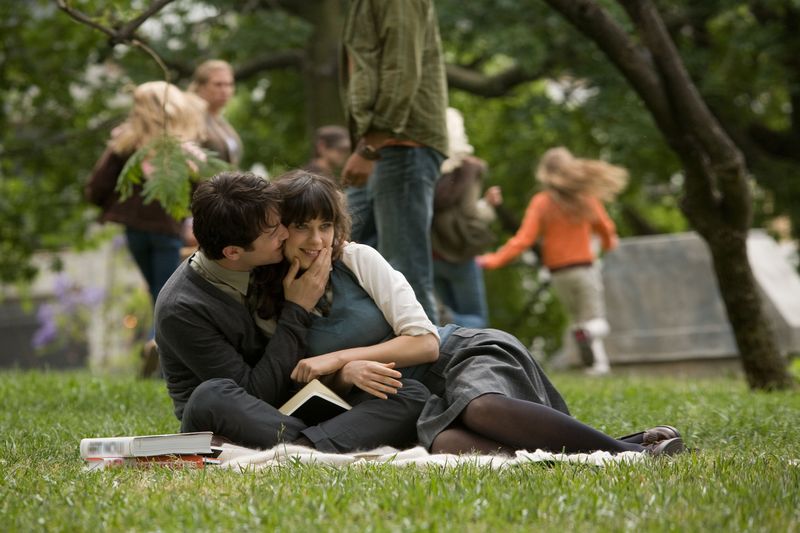
Love stories in films often promise us the comfort of happy endings, but some of the most powerful romantic movies dare to show love in all its complicated glory. These unforgettable films remind us that not every romance leads to happily-ever-after, yet they’re still beautiful journeys worth taking. Each captures something true about relationships that perfect endings sometimes miss—the messy reality that makes love so precious and painful.
1. Blue Valentine (2010)
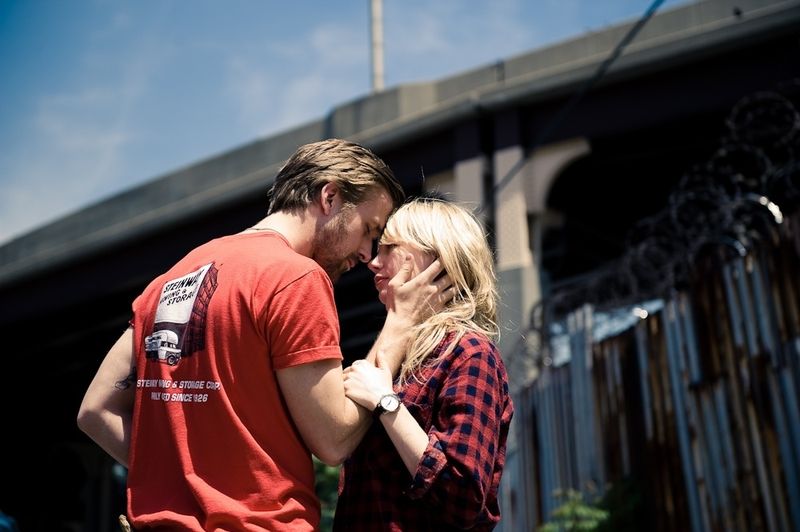
Dean and Cindy’s relationship unfolds like a beautiful origami that someone slowly, painfully crumples. Ryan Gosling and Michelle Williams deliver raw performances that feel almost too intimate to watch.
The film’s genius lies in its parallel storytelling—showing us both the electric beginning and the hollow end simultaneously. We witness their youthful passion in sunlit moments, then see those same faces years later, barely recognizing each other across a dinner table.
Director Derek Cianfrance refuses to assign blame, instead showing how two people can love deeply yet still damage each other beyond repair. It’s a gut-wrenching portrait of how time can transform tenderness into toxicity.
2. Lost in Translation (2003)
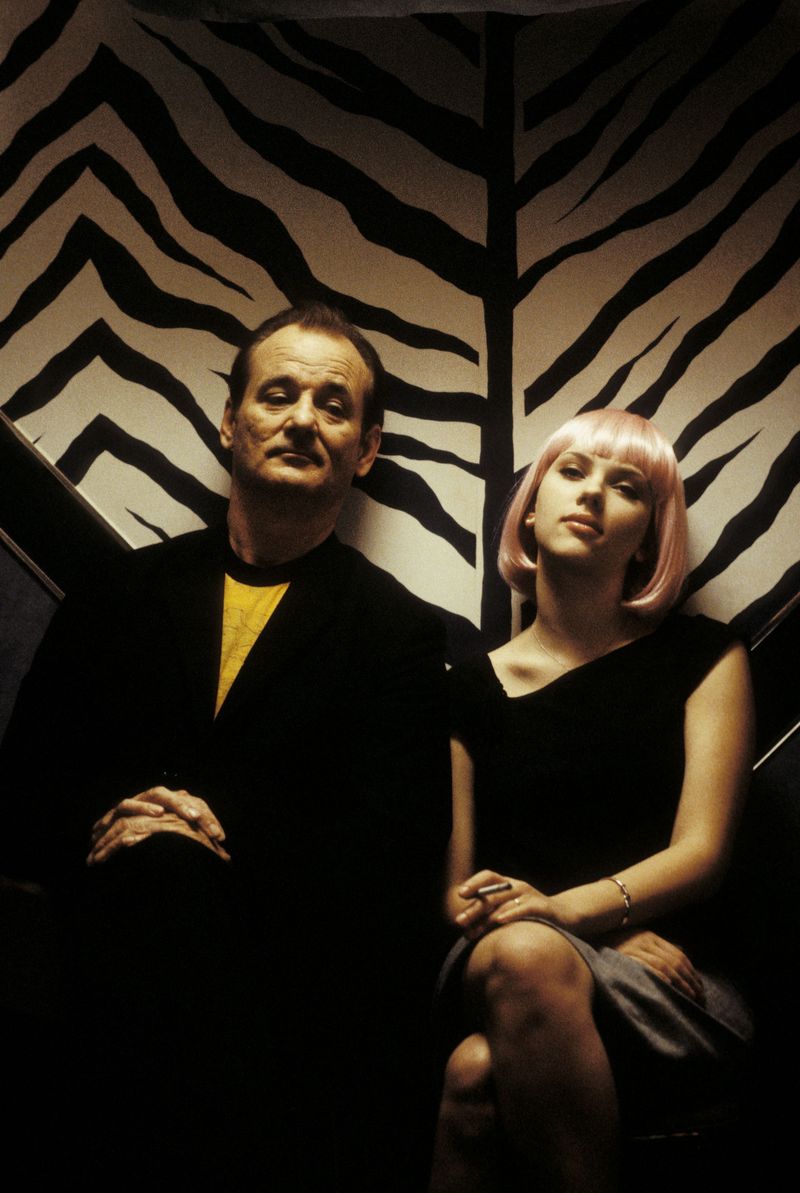
Two strangers adrift in Tokyo’s neon wilderness find each other by accident. Bill Murray’s aging actor and Scarlett Johansson’s neglected young wife share insomnia, disorientation, and eventually, an unexpected bond that defies easy categorization.
Sofia Coppola captures loneliness in crowded spaces with breathtaking precision. The film whispers rather than shouts, showing how profound connections can be formed in life’s in-between spaces.
Their farewell embraces everything beautiful about their relationship—it’s temporary, impossible, and all the more precious for it. What Bob whispers to Charlotte remains their secret, leaving us with an ending that aches with possibilities never to be realized.
3. Celeste and Jesse Forever (2012)
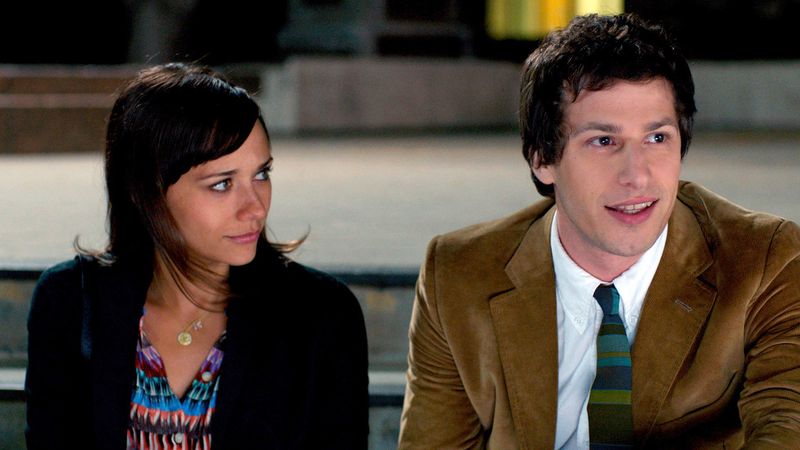
High school sweethearts turned spouses turned… something complicated. Rashida Jones and Andy Samberg portray exes trying to maintain their best-friendship while their marriage crumbles—a nearly impossible balancing act.
What makes this film unique is its willingness to explore the gray area between romance and friendship. They share inside jokes and genuine affection while simultaneously trying to date other people. The film’s painful truth emerges gradually: sometimes loving someone doesn’t mean you should be together.
Their attempts to preserve their connection while building separate lives creates a poignant study of modern relationships where breakups don’t have to mean goodbye, but staying close might hurt more than letting go.
4. Annie Hall (1977)
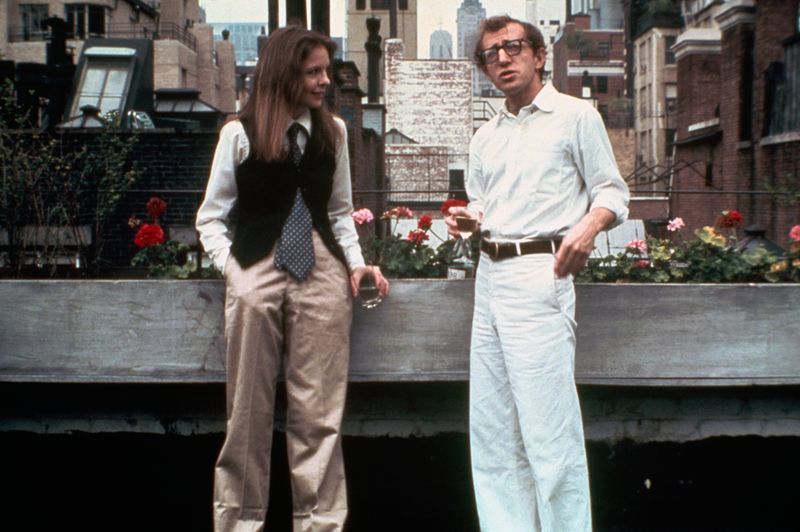
“A relationship is like a shark—it has to constantly move forward or it dies.” Woody Allen’s neurotic comedy captures the magnificent mess of falling in and out of love with unfiltered honesty. Alvy Singer (Allen) and Annie Hall (Diane Keaton) create something wonderful together, but their relationship has an expiration date.
The film’s brilliance lies in breaking the fourth wall—characters address the audience directly, animations appear, and split-screen techniques show contrasting perspectives. Their relationship doesn’t fail because they stop loving each other, but because they’re growing in different directions.
The film’s parting wisdom? Sometimes what we need from people isn’t forever, and that’s okay—some loves are meant to transform us, not complete us.
5. (500) Days of Summer (2009)
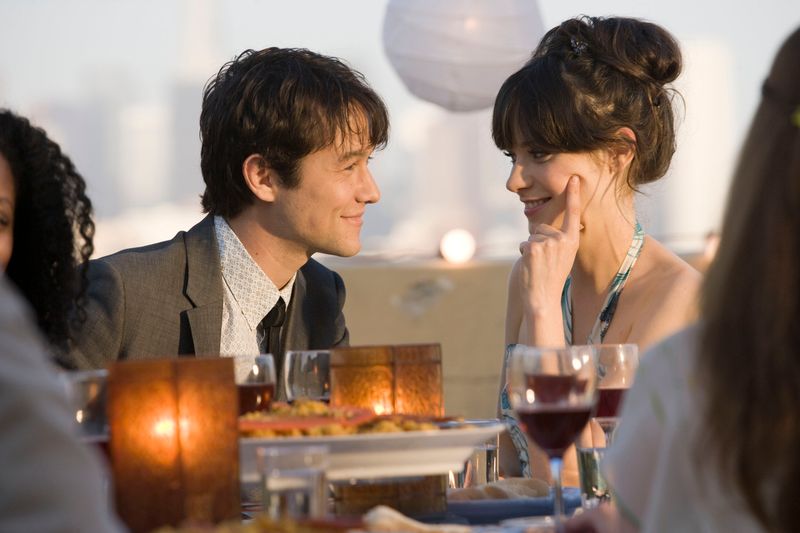
“This is not a love story,” the narrator warns us—but we don’t listen. Neither does Tom (Joseph Gordon-Levitt), who falls hopelessly for Summer (Zooey Deschanel) despite her clear statements about not wanting anything serious.
The film’s fragmented timeline mirrors memory itself—how we revisit moments of heartbreak, searching for clues we missed. Tom projects his romantic fantasies onto Summer, seeing what he wants instead of who she actually is.
Reality crashes through in a devastating split-screen sequence showing Tom’s expectations versus what actually happens at a party. Few films capture the gulf between romantic imagination and reality so effectively. The bittersweet revelation? Sometimes the people we love most aren’t meant to love us back the same way.
6. Casablanca (1942)
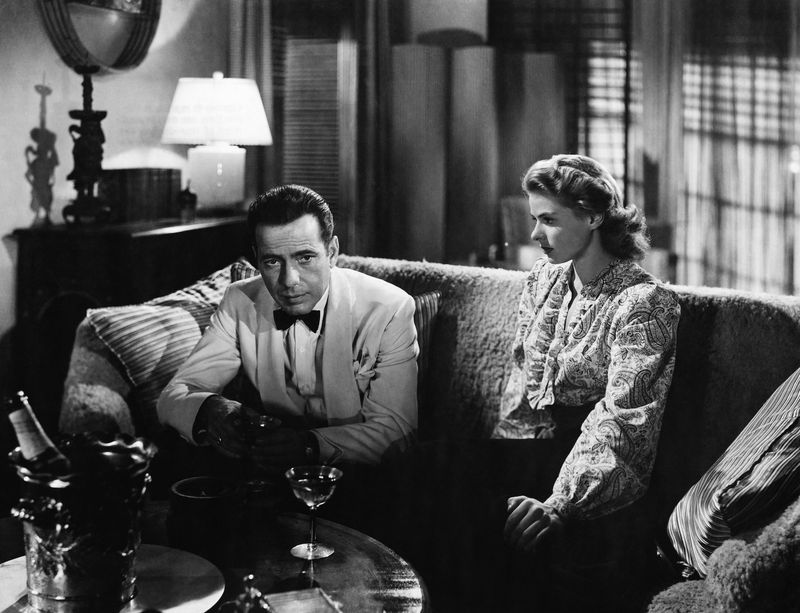
“We’ll always have Paris.” Has a more heartbreaking line ever been spoken? Humphrey Bogart’s Rick finds his long-lost love Ilsa (Ingrid Bergman) in his Moroccan nightclub, reigniting feelings he’d tried to drown in whiskey and cynicism.
Set against World War II’s chaos, their reunion forces impossible choices. The fog-shrouded airport scene where Rick sends Ilsa away with her husband remains the gold standard for bittersweet goodbyes in cinema history. What makes Casablanca extraordinary is how it elevates romantic sacrifice to heroism.
Rick chooses the greater good over his own happiness, transforming personal heartbreak into moral victory. Their unfulfilled love story resonates more powerfully than any happy ending could—sometimes the most profound expression of love is letting someone go.
7. Up in the Air (2009)
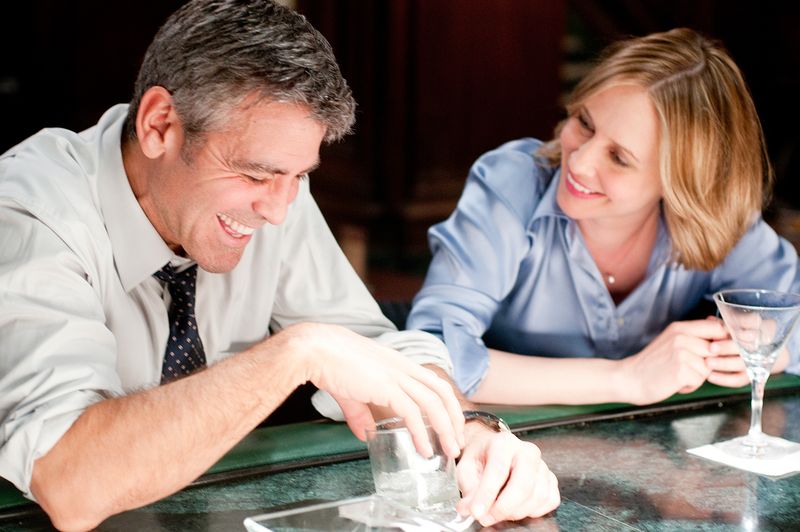
Ryan Bingham (George Clooney) has perfected detachment—firing people for a living while living out of a suitcase. His philosophy: relationships are baggage, and baggage slows you down. Enter Alex (Vera Farmiga), who seems like his perfect match—another frequent flyer interested in casual connection without commitment.
Their hotel room rendezvous feel like a dream solution for the commitment-phobic. The devastating twist arrives when Ryan finally opens his heart, only to discover Alex’s “simpler” life includes a husband and children.
His heartbreak is especially poignant because he broke his own rules. The film’s genius lies in showing how even those who think they’ve mastered emotional detachment are vulnerable to love’s complications and disappointments.
8. The Roses (2025)
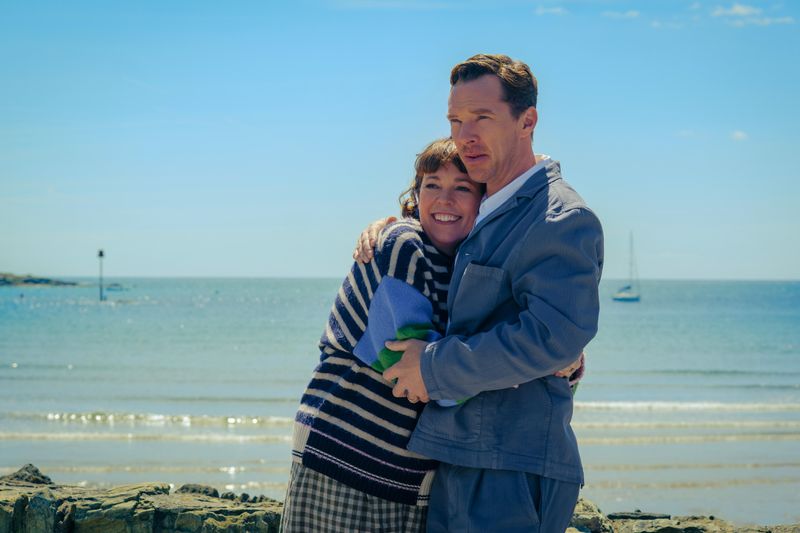
Benedict Cumberbatch and Olivia Colman deliver career-defining performances as Theo and Ivy Rose, a couple whose marriage transforms from passionate to poisonous. What begins as petty disagreements escalates into increasingly elaborate acts of domestic warfare.
The film’s dark comedy comes from watching these intelligent people deploy their intimate knowledge of each other’s weaknesses as weapons. Director Noah Baumbach captures the claustrophobia of a shared home becoming a battleground, where familiarity breeds not just contempt but strategic advantage.
The tragedy unfolds when they rediscover their connection moments before their final, most destructive prank backfires catastrophically. Their realization comes too late—proving that sometimes understanding arrives only after the point of no return.
9. Bright Star (2009)
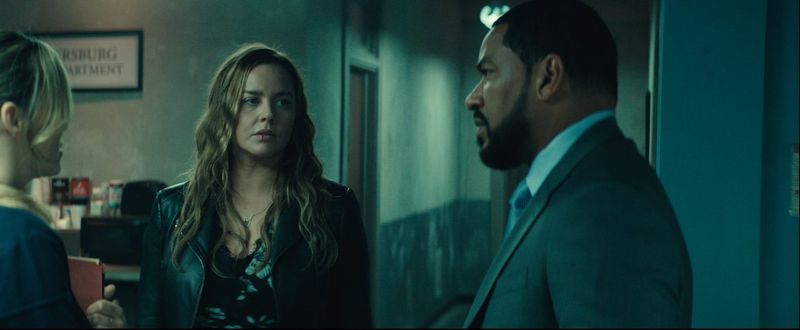
Jane Campion’s lush period drama captures the forbidden romance between tubercular poet John Keats (Ben Whishaw) and spirited fashion student Fanny Brawne (Abbie Cornish). Their love blooms through poetry, walks, and stolen moments under the disapproving gaze of society.
The film’s visual language speaks volumes—sunlight through curtains, hands touching across tabletops, letters read and re-read until the paper thins. Their connection deepens even as Keats’ health deteriorates, creating unbearable tension.
Unlike melodramatic tearjerkers, Bright Star finds tragedy in life’s simple cruelty: genius extinguished too soon, love interrupted by biology. Fanny’s grief after John’s death at 25 becomes its own kind of poetry—raw, unfiltered emotion that honors their brief but profound connection.
10. Titanic (1997)
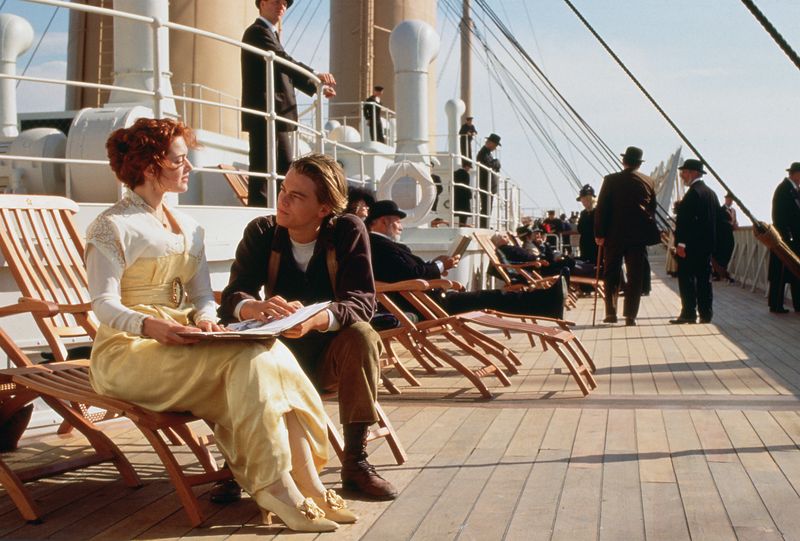
Before it became a cultural phenomenon, Titanic was simply a breathtaking romance with an ending written by history itself. Rose (Kate Winslet), suffocating in upper-class expectations, and free-spirited artist Jack (Leonardo DiCaprio) find each other aboard the “unsinkable” ship.
Their whirlwind romance—from drawing sessions to steamy car encounters—unfolds against the backdrop of impending disaster. James Cameron’s technical mastery makes us forget we already know the ship’s fate, letting us hope against hope for these lovers.
Jack’s death in the freezing Atlantic isn’t just historical accuracy—it’s the perfect tragic conclusion to their impossible romance. Rose’s promise to “never let go” becomes metaphorical rather than literal, showing how love can transcend death, class, and even the passage of time.

Comments
Loading…